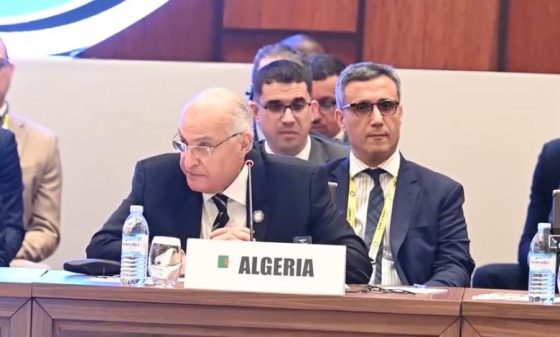Physical Address
Indirizzo: Via Mario Greco 60, Buttigliera Alta, 10090, Torino, Italy
Physical Address
Indirizzo: Via Mario Greco 60, Buttigliera Alta, 10090, Torino, Italy


Attaf during his speech at the MNA Summit.
After the United States, Russia, the European Union, China, Japan, India and Turkey, it is South Korea’s turn to organize a summit with African political leaders. The Minister of Foreign Affairs, Ahmed Attaf, is already there. He arrived this Saturday in the South Korean capital to participate in the work of the preparatory ministerial meeting for the Africa-Korea summit.
For the first time since its creation, the Republic of Korea will host the leaders of African states at the Korea – Africa 2024 summit, which will be held on June 4 and 5 in Ilsan and Seoul.
Mr. Attaf was asked by the President of the Republic to take part in this meeting, according to a press release from the ministry. “Algeria’s participation reflects its desire to strengthen the strategic partnership with Korea and its attachment to collective African work,” explains the press release. For Algeria, it is a question of putting its mark and its imprint in this summit in the midst of the crises which are shaking Africa and many regions, led by the Middle East.
For South Korea, this summit is of fundamental importance for its future economic and trade relations. The South Korean government views Africa as a key hub for the “Global South” _ a geopolitical notion bringing together a variety of countries in the South _ and therefore decided to organize the first-ever Korea-African summit to to strengthen economic cooperation with Africa.
The African continent is considered the “last market of the future” given its abundant resources and its large population of more than a billion inhabitants. Despite this potential, indicators of economic cooperation between Korea and Africa are so far very marginal and relations with this continent have until now only focused on development aid.
And it is precisely on this summit, considered as a starting point, that Seoul is banking on the development of its relations with the African continent. It should be noted that preparations began several months ago with the creation of a public-private cooperation committee.
According to the Korean Ministry of Trade, Industry and Energy, the committee will play a “link” role for bilateral economic cooperation so that South Korean entrepreneurs can enter the African market and strengthen cooperation with men. African business people. The committee will also seek to find ways to support private companies aiming to produce good results, such as contracts or memorandums of understanding with the African side.
Placed under the slogan “The future, we create it together”, the summit confirms the desire of the South Korean authorities to have a more significant presence on this continent rich in natural resources.
However, according to observers, this summit comes in a context of strong tensions and geopolitical turbulence in several regions of the world, where Africa has become an area of great rivalry between the great powers. This war of influence, which carries many dangers, is a real source of instability on the security and economic levels.
However, Seoul intends to develop its relations with Africans, by establishing a long-term partnership, especially since the volume of trade between South Korea and African countries is struggling to exceed 20 billion of dollars. A figure that represents only 2% of South Korea’s total trade. For observers and businessmen, there is still plenty of room for improvement.
But beyond business with a country whose nominal gross domestic product in 2021 was the 11th highest in the world (an amount of nearly $1,800 billion), there is politics. Because Seoul intends to become a “global pivot”. An ambition clearly displayed by South Korean leaders given that the country occupies a non-permanent member position on the UN Security Council.